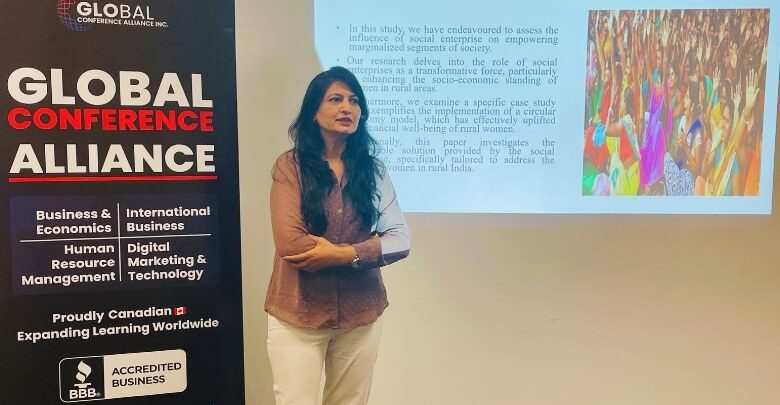The challenge of hosting an event often hinges on the quality and relevance of its speakers. Picture yourself in an audience, eagerly awaiting the keynote address, knowing that this presentation has the potential to either make or break the entire event experience.
Imagine if that speaker was someone you’ve always admired, lending credibility and gravitas to your event. But how do you bridge the gap between desire and reality? Here lies the crucial question: how to ask someone to be a keynote speaker?
Successfully inviting a keynote speaker isn’t just about shooting an email; it’s about strategy, timing, and conveying the value they’ll bring. Stick around, and we’ll guide you through an approach that elevates your invitation and significantly increases the chances of a resounding “yes.”
Keynote Speaker – What Should You Know First?
Events succeed in impactful messages and memorable moments. Keynote speakers often serve as the linchpin for these experiences. A keynote speaker is a primary spokesperson who conveys a central message or theme at a convention, conference, or seminar.
Typically, their speech kicks off the event, setting the tone, inspiring attendees, and often emphasizing the core message. As thought leaders in their respective fields, their words carry weight and are expected to resonate with the audience.
Yet, only some experts can be an effective keynote speaker. A remarkable keynote combines knowledge with engaging storytelling, captivating listeners and driving the message home. They don’t just present information; they connect, motivate, and spark transformative thinking.
Choosing the right keynote speaker can make all the difference. For that most well-known conference organizers look for highly skilled individuals to promote the event, leave a lasting impression, and inspire attendees long after the curtains fall. The challenge lies in identifying and securing such talent.
Importance of a Keynote Speaker
In events and conferences, a keynote speaker often stands as a beacon, guiding the direction and tone. Their significance goes beyond mere words; they shape experiences.
Setting the Event’s Tone
A keynote speaker possesses the power to define the ambiance of the event. Their opening words can engage, motivate, or challenge attendees. The energy they introduce often permeates throughout the subsequent sessions.
Providing Expert Insight

Driving Engagement and Participation
Engagement isn’t guaranteed at events; it’s earned. A compelling keynote captivates attendees, prompting discussions and interactions. The momentum built by a strong opening often sustains throughout the event.
Enhancing Credibility and Attractiveness
Securing a renowned keynote speaker adds credibility to your event. Their presence can attract a larger audience and media attention. An esteemed speaker often signals an event’s quality and significance.
Inspiring Transformation and Action
Beyond sharing knowledge, keynotes inspire change. They challenge conventional thinking, urging listeners to act or rethink. The best keynotes leave attendees with actionable takeaways and transformative thoughts.
How to Ask Someone to Be a Keynote Speaker?
Choosing the right keynote speaker can elevate an event, but the approach of inviting them is equally pivotal. Here’s a step-by-step guide to ensure your invitation hits the mark.
Step-1. Research Potential Speakers
Before approaching anyone, conduct thorough research on potential candidates. Identify individuals who align with your event’s theme and audience. This step ensures relevance and enhances the likelihood of acceptance.
Step-2. Craft a Personalized Invitation
Generic invitations rarely make an impact. Draft a personalized message highlighting why you believe they’d be the perfect fit. Ensure it’s concise yet compelling, with a clear call to action.
Step-3. Highlight Mutual Benefits
Speakers often seek platforms that benefit their brand or cause. Explain how your event can offer exposure, networking opportunities, or align with their objectives. A win-win proposal is more likely to succeed.
Step-4. Provide Event Details
Ensure your invitation includes essential details: event date, location, audience demographics, and other key speakers. Offering clarity upfront reduces back-and-forth and showcases professionalism.
Step-5. Address Logistics and Compensation
Be upfront about any financial compensation, travel arrangements, or accommodations. If budget constraints exist, discuss alternative settlements like publicity or networking possibilities. Transparency builds trust.
Step-6. Be Patient and Respectful
Once you’ve sent the invitation, be patient. Understand that renowned speakers have hectic schedules. If they decline, thank them graciously and consider alternative options without burning bridges.
Step-7. Prepare for a Follow-up Meeting
If they express interest, be ready to delve deeper. Schedule a follow-up meeting to discuss their presentation’s content, duration, and any technical requirements. This ensures alignment and smooth event execution.
Step-8. Formalize the Agreement
Once everything is agreed upon, draft a formal agreement or contract. This document should outline responsibilities, compensation, and any other vital terms. Both parties should review, adjust if necessary, and sign to confirm commitment.
Step-9. Maintain Open Communication
As the event date approaches, maintain regular communication. Ensure they’re aware of any event updates, schedules, or logistical changes. Open channels foster a smooth event day experience.
Step-10. Show Gratitude
After the event, express your gratitude. Not only is this courteous, but it also fosters a positive relationship for potential future collaborations. Consider sending a thank-you note, gift, or even public acknowledgment.
Considerable Factors While Looking for a Keynote Speaker
Finding the perfect keynote speaker combines research, intuition, and strategy. It’s essential to consider various factors that influence the decision.
Relevance to the Event’s Theme
Your speaker’s content should complement the event’s overarching theme. They should offer insights that resonate with the event’s objectives. Mismatched content can be confusing and disengage the audience.
Audience Demographics and Preferences
Consider the audience’s age, profession, interests, and cultural backgrounds. A speaker experienced in addressing similar demographics can better connect. Their message should appeal to attendees’ aspirations and challenges.
Speaker’s Reputation and Credibility
A speaker’s reputation can significantly influence the event’s appeal. Established figures can attract larger audiences and media coverage. However, ensure their credibility aligns with the event’s values.
Past Speaking Engagements and Feedback
Reviewing previous performances provides insight into a speaker’s style. Feedback from past events can highlight strengths or potential areas of concern. Videos or testimonials can offer valuable insights.
Adaptability to Different Platforms
In today’s digital era, events can be virtual, in-person, or hybrid. The ideal speaker is comfortable across diverse platforms. Technical adaptability ensures seamless content delivery regardless of the format.
Budget and Compensation Expectations
Cost is an undeniable consideration. Gauge the speaker’s compensation expectations early in the process. Seek a balance between budget constraints and the value they bring to the event.
Availability and Willingness to Engage
Even the most suitable candidate is moot if unavailable. Check their availability for event dates and potential preparatory meetings. Additionally, assess their willingness to engage with attendees post-presentation for Q&A sessions.
By giving due importance to these factors, event organizers can secure keynote speakers who not only enhance the event’s credibility but also offer memorable insights to the attendees.
Qualifications of a Good Keynote Speaker
Selecting the ideal keynote speaker is more than their fame or expertise. The real magic lies in their blend of qualifications and charisma.
Deep Expertise in the Subject Matter
Knowledge is the cornerstone of any keynote address. A credible speaker possesses deep expertise in their domain, ensuring authenticity. This foundation lets them speak with conviction and confidence.
However, more than knowledge alone is needed to guarantee a great keynote. The best speakers blend their insights with relatable narratives. Stories help transform raw data into compelling content, creating memorable moments for attendees.
Strong Communication Skills
The essence of a keynote lies in its delivery. Influential speakers possess robust communication skills, ensuring clear and impactful messages. They understand the nuances of pacing, tone, and emphasis.
Moreover, communication extends beyond verbal prowess. Non-verbal cues, body language, and audience interaction play pivotal roles. A good keynote speaker can read the room and adapt dynamically, maintaining engagement.
Authentic Passion and Enthusiasm
Genuine passion shines through and captivates audiences. When a speaker truly believes in their message, it resonates more deeply. It’s this enthusiasm that turns a speech into an experience.
Yet, passion should be tempered with authenticity. Forced enthusiasm can be easily spotted and may alienate the audience. The best keynotes are rooted in genuine interest and real-world experiences.
Adaptability to Diverse Audiences
Every event is unique, with its audience demographics and expectations. A great keynote speaker is adaptable, tailoring their content to match. They respect cultural nuances and can shift their approach accordingly.
Moreover, unexpected challenges can arise during a speech. Technical hitches, random questions, or shifting moods require on-the-fly adjustments. Adaptability ensures the message remains impactful, regardless of circumstances.
Ability to Inspire and Motivate
The true hallmark of an outstanding keynote speaker is the legacy they leave. Their words should inspire, provoke thought, and drive action. A successful keynote shifts paradigms and sparks transformative thinking.
Inspiration isn’t solely about grand visions. The best speakers connect with attendees on a personal level. By touching individual lives, they create ripple effects, magnifying their impact exponentially.
End Notes
Finding the right keynote speaker can be a daunting task for many event organizers. It’s easy to feel overwhelmed by the perceived stature of potential candidates. However, the central question is not just about whom to ask but how to ask someone to be a keynote speaker.
At the heart of this process is a combination of thorough research, personalization, and clear communication. When you approach with sincerity, outline mutual benefits, and maintain professionalism, the odds of receiving a positive response increase. Remember, the right approach can transform a mere invitation into the foundation for a memorable event and a lasting professional relationship.






